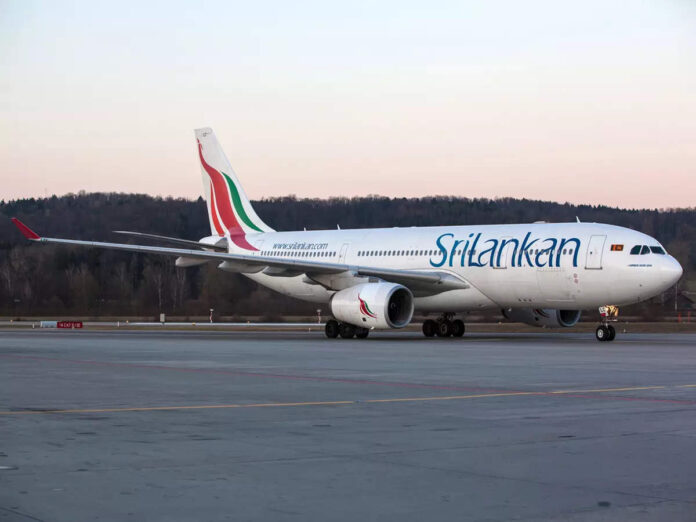ATF reserves in the country have run out, according to a report in Daily Mirror
PRAVASISAMWAD.COM
The fuel crisis in Sri Lanka could force Sri Lankan Airlines, the national carrier, to cancel quite a few of its flights until July 18, according to media reports. ATF reserves in the country have run out, local media Daily Mirror mentioned.
SriLankan Airlines has told its employees that flight operations would be impacted until the July 18. In fact, the Sri Lankan management in an internal memo to its employees announced that the airline had exhausted available jet fuel stocks on June 29. The note also said that services would be affected, the Daily Mirror reported.
The Sri Lankan Civil Aviation Authority (CAA) had, on June 28 sent out a notice to the airlines to carry fuel for their return journeys. That was because Sri Lanka’s oil and gas company, Ceylon Petroleum Corporation (CPC), had failed to import the required jet fuel into the country due to the foreign exchange crisis.
The economic crisis has had deep effects on food security, agriculture, livelihoods, and access to health services. Food production in the last harvest season was 40 – 50 per cent lower than last year, and the current agricultural season is at risk, with seeds, fertilisers, fuel and credit shortages
The daily fuel usage of Sri Lankan Airlines out of Bandaranaike International Airport (BIA) is around 700,000 litres. The airport manages to secure approximately 250,000 litres per day on average. Since that is not enough to meet the requirements, Sri Lankan Airlines has introduced “tech stops’ on certain routes to reduce the uplift from Colombo. This, of course, incurs additional costs.
Incidentally, schools in Sri Lanka have been closed due to the economic crisis. Severe protests sparked political unrest leading to the resignation of President Gotabaya Rajapaksa’s brother Mahinda
Rajapaksa from the Prime Minister’s post and the appointment of Ranil Wickremesinghe as the country’s Prime Minister in May this year.
The economic crisis has had deep effects on food security, agriculture, livelihoods, and access to health services. Food production in the last harvest season was 40 – 50 per cent lower than last year, and the current agricultural season is at risk, with seeds, fertilisers, fuel and credit shortages.
******************************************************
Readers
These are extraordinary times. All of us have to rely on high-impact, trustworthy journalism. And this is especially true of the Indian Diaspora. Members of the Indian community overseas cannot be fed with inaccurate news.
Pravasi Samwad is a venture that has no shareholders. It is the result of an impassioned initiative of a handful of Indian journalists spread around the world. We have taken the small step forward with the pledge to provide news with accuracy, free from political and commercial influence. Our aim is to keep you, our readers, informed about developments at ‘home’ and across the world that affect you.
Please help us to keep our journalism independent and free.
In these difficult times, to run a news website requires finances. While every contribution, big or small, will makes a difference, we request our readers to put us in touch with advertisers worldwide. It will be a great help.
For more information: pravasisamwad00@gmail.com



